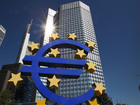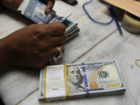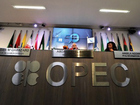A $10 billion deal between Iran and European aircraft manufacturer Airbus for 118 aircraft is still pending authorization from the United States, Deputy Transport Minister Asghar Fakhrieh Kashan told AFP Friday.
Iran has ordered about 200 planes from three Western manufacturers since nuclear-related sanctions were lifted in mid-January.
 Full Story
Full Story
Saudi Arabia's surprisingly high-profile injection of $3.5 billion into Uber signals a more aggressive global investment presence by a kingdom trying to wean its economy off oil.
 Full Story
Full Story
The United States said on Friday it had signed a major new loan guarantee with Ukraine aimed at helping the war-scarred former Soviet republic stabilize its floundering economy.
 Full Story
Full Story
Germany will grow at a slightly slower pace than previously expected, its powerful central bank predicted Friday as it cut its forecasts for Europe's top economy.
The central bank of neighbouring France also turned more pessimistic on the growth outlook for the eurozone's second-biggest economy.
 Full Story
Full Story
The dollar edged lower Friday as traders focus on US jobs data later in the day that will help the Federal Reserve decide on when to lift interest rates.
 Full Story
Full Story
The OPEC oil cartel said Thursday that it has appointed Nigeria's Mohammed Barkindo as its new secretary general.
 Full Story
Full Story
Oil prices were flat in early Asian trading Thursday as investors awaited the outcome of an OPEC meeting later in the day in Vienna.
Traditionally the Organization of the Petroleum Exporting Countries, which pumps around a third of the world's oil, has cut production to boost prices.
 Full Story
Full Story
The yen rallied Thursday on worries about the Japanese economy and uncertainty over Britain's future in the European Union, while investors awaited the release of US jobs data.
 Full Story
Full Story
The Mediterranean holiday island of Cyprus recorded a 24-percent hike in key tourism revenues in March, its highest monthly percentage rise this year, official data showed Wednesday.
 Full Story
Full Story
The world's longest tunnel officially opened on Wednesday, with the trailblazing rail passage under the Swiss Alps aiming to ease transit through the heart of Europe.
 Full Story
Full Story



